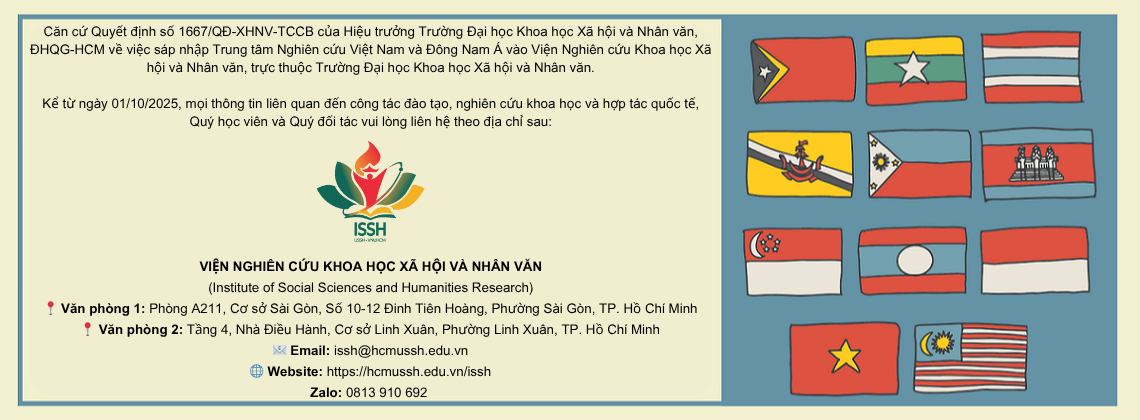FIELD RESEARCH IN CA MAU PROVINCE
, 05/11/2024 15:11From October 28 to October 30, 2024, the Center for Vietnam and Southeast Asian Studies conducted a field trip to Ca Mau province. The research team included Dr. Tran Dinh Lam, Director of the International Training Program; Dr. Bui Thi Minh Ha; and Ms. Symonekeo Sensathith Thomas, a doctoral student at Johns Hopkins University, USA. The delegation collaborated with the Department of Natural Resources and Environment, the Department of Agriculture and Rural Development, the Department of Construction, the Department of Science and Technology, and the GCF project management board of Ca Mau province.
.jpg)
The main objective of this fieldwork was to collect data to support the research on “Critical Assessment of the Effectiveness of Climate Adaptation Aid to Vietnam by Global Foreign Aid Agencies: A Case Study of the Mekong Delta.” The aim was to draw lessons from experiences in adapting food production systems and biodiversity in Vietnam to the impacts of climate change, which can be applied to the development of National Adaptation Plans (NAPs) in Vietnam and other developing countries with similar characteristics.
The fieldwork specifically assessed the completed FP013 project funded by the Green Climate Fund (GCF) and implemented by the United Nations Development Programme (UNDP). The team worked with local authorities and communities participating in the GCF project and collected detailed information on the sustainability and outcomes of initiatives in the province, focusing particularly on initiatives related to agricultural development, disaster risk management, environmental protection, and climate adaptation in Ca Mau province. Key activities included meetings with the Provincial People’s Committee (PPC), the Department of Agriculture and Rural Development (DARD), and visits to U Minh and Ngoc Hien districts to discuss project implementation with local leaders and residents.

Key findings from field work:
Discussions with project leaders demonstrated a strong alignment with provincial and local needs, reflecting a commitment to sustainability. The evaluation of the project implementation process provided valuable insights and recommendations for future projects. The delegation also engaged with leaders and mass organizations focused on outcomes related to resilient housing and community-based disaster risk management.
The analysis highlighted the need for continued support and training for local communities to ensure sustained benefits from the project. Visits to mangrove areas facilitated stakeholder discussions on reforestation initiatives and community participation in conservation efforts. Environmental changes and community adaptation to these changes were also assessed.
Stakeholder lessons learned emphasize the importance of community engagement, active participation, and clear communication among all stakeholders.
Fieldwork in Ca Mau province provided insights into the implementation and impacts of ongoing projects. The involvement of local authorities and communities underscored the importance of resilience and sustainability in project planning and implementation. The findings will contribute to improving future project designs and fostering closer collaboration among stakeholders. Most notably, the success of mangrove regeneration reached 80%, covering an area of over 3,100 hectares. Equally important was the success of permanent housing and community-based disaster risk management for 425 vulnerable families across five districts in Ca Mau province.

Suggestions for future work:
• Strengthen community training programs to ensure sustainable project benefits.
• Enhance cooperation between local organizations and government projects to optimize resource sharing and support.
• Conduct follow-up assessments to evaluate long-term impacts and necessary adjustments after project completion.
• Support applications for additional funding needed to expand this work more widely in Ca Mau Province.
This report serves as a foundation for future initiatives, collaborations, and funding proposals to support Ca Mau Province and the Mekong Delta of Vietnam from the government and international organizations.
During this fieldwork research, Dr. Tran Dinh Lam also donated books on “The Economic, Cultural and Social Life of Bahnar People: Sustainable Development and Intellectual Property Rights in Developing Countries” to the local authorities.














